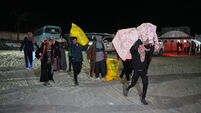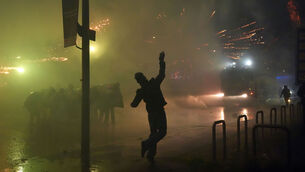Sri Lankan leader gives green light to peace talks
Sri Lanka’s president today asked Norway’s peace envoy to set up new talks with Tamil rebels in hopes of staving off a civil war, but the separatists continued to brace for a possible return to battle.
Daily violence in the country’s north and east continued, meanwhile, with three Tamils killed, including two linked to the guerrillas.














